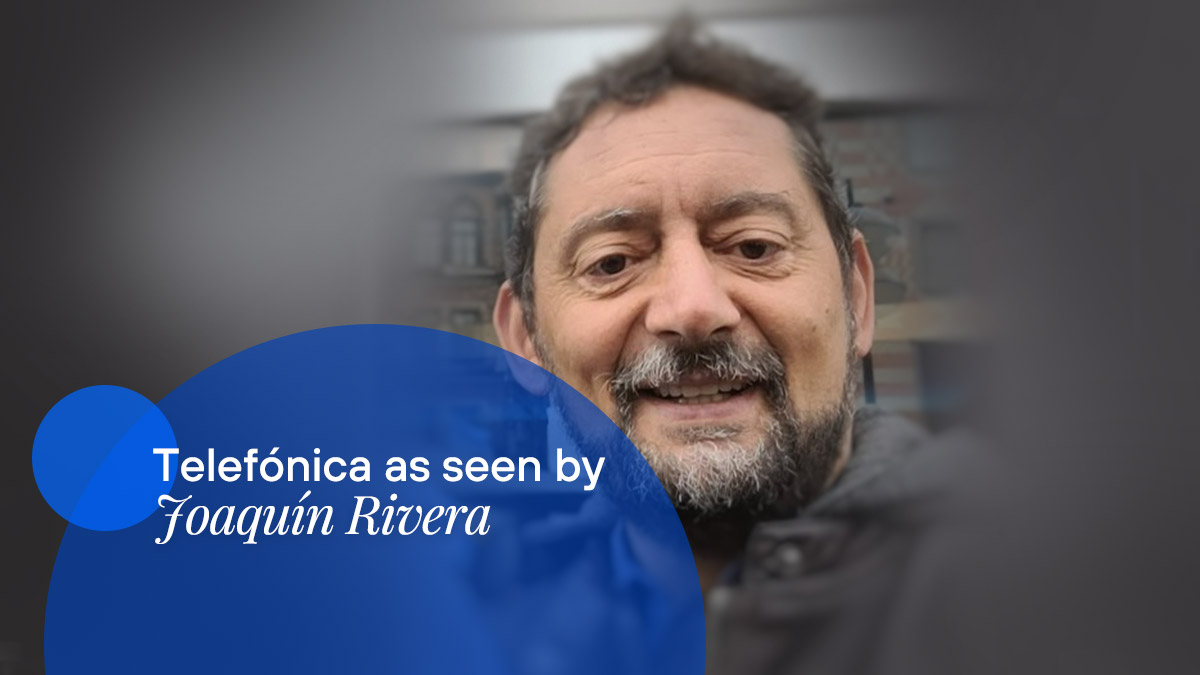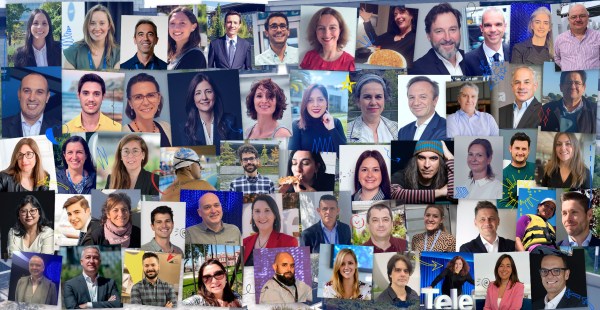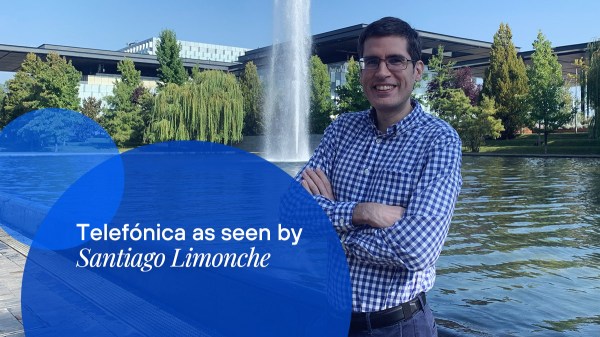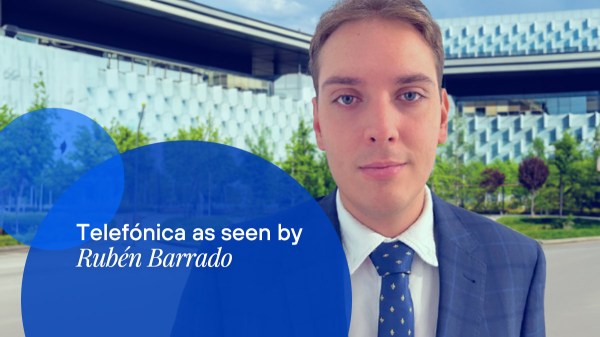How long have you been with Telefónica and what is your assessment of your time here?
I joined Telefónica in January 1994, and I am happy and proud to still be here after 30 years, to be able to celebrate our Centenary. How can I evaluate it more clearly than “once a Telefónica, always a Telefónica”?
I have spent my entire professional career at Telefónica: 13 different positions, including operations, network deployment and customer projects, pre-sales and specialised sales, satellite business management, purchasing… even “supporting faculty” at Universitas. Some would say I’m a restless ass, I prefer to see it as a path of constant search for knowledge and personal growth.
But the professional aspect is not even half of what I have experienced in these 30 years. At Telefónica I got married, although we were sweethearts before we both joined La Casa. At Telefónica I have been a father three times. With Telefónica I have become an immigrant, and with time I have put down roots in a new land, with a better future for our daughters. At Telefónica I have learned telecommunications, finance, leadership, to be a coach, to negotiate, to think critically, to put value before any other metric …. and above all, I have begun to discover who I am.
Telefónica is my life, and I am thankful that I have had a happy life.
Is there any project at Telefónica that you feel particularly satisfied with?
Many, very many. I would highlight two, one for my personal contribution and the other for the pride of belonging it gives me.
Between September 2000 and March 2001, I led the definition of the technical requirements (design, power density per surface area, resilience, etc.) of our new Data Centre in Miami, as well as the contracting of the architectural and engineering firm that designed it and the construction company that built it. It was inaugurated in September 2001, shortly after the world collapsed under our feet on 11 September 2001. On 24 October 2005, Hurricane Wilma (cat.5), the most powerful hurricane ever recorded in the Atlantic, crossed the Florida peninsula, causing extensive damage in Miami. Although it took more than three days to restore power and water distribution to many of the homes and buildings in the area, our Data Centre has not had a single second of downtime. After the storm, the unused areas of the building were given to the city of Miami as a shelter for people who had nowhere to sleep.
April 2007, an earthquake of force 6.2 hits Chile. At this time I was responsible for the commercial side of the satellite business at TIWS (Wholesale Services). A call on a Saturday asked me to get all the telephone terminals and satellite internet access (BGAN was then the leading technology) I could find in Madrid in three days, and get them to an address in Alcobendas. On Thursday I was with my team, in the garden of a villa, teaching JM Alvarez-Pallete (TEF Latam president at the time) and Jose Ramón Vela (TIWS CEO) how to configure and commission the terminals. That night they went in person to the disaster area to support the civil emergency services, and our own colleagues who had to restore the network.
Just giving the order and going on with their agendas would have been enough, they would have covered the need. But they went above and beyond, stepping completely out of their comfort zone, and being on the ground when it was most needed.
What do you think Telefónica has contributed to society?
Communication, of course. But also a way of doing things, a culture. Telefónica has been providing a dividend to millions and millions of small shareholders for years. Telefónica continues to invest in Venezuela and Argentina. Not because it is profitable, but Venezuelan society and Argentina need us. Telefónica Foundation… ProNiño, ProFuturo? Perhaps the organisation that has contributed the most to children in the world, after UNICEF?
Where do you see Telefónica in the future?
Where it is today, at the centre of the digital revolution. The form and technologies will evolve, but I don’t foresee a future without telecommunications. On the contrary, every day they will thread our society more and more, and Telefónica will be there.
Could you live without a mobile phone?
Yes, I lived without it for almost 30 years. Now I’ve had it for almost 30 years. God willing, and God grants me another 30 years, my intuition tells me that we will no longer use mobile phones. At least as we know it today. Holographic bracelet, ring, retinal implant? What would be a very bad life is to be forced to live disconnected.
Help us solve one of humanity’s great enigmas: the potato omelette… With onion or without onion?
Without onion it can be omelette, but not “potato omelette”. Sincebollistas, chop the onion very finely, very small. The omelette gets the necessary fluffiness, but you don’t find the onion when you eat it. I’ve tried it with many of you – it works!
Nominate another colleague to appear in this section
100,004 colleagues, according to Success Factors today, deserve to be in this section. But I’m going to go for it; I nominate my boss, Miloud Saadi.








